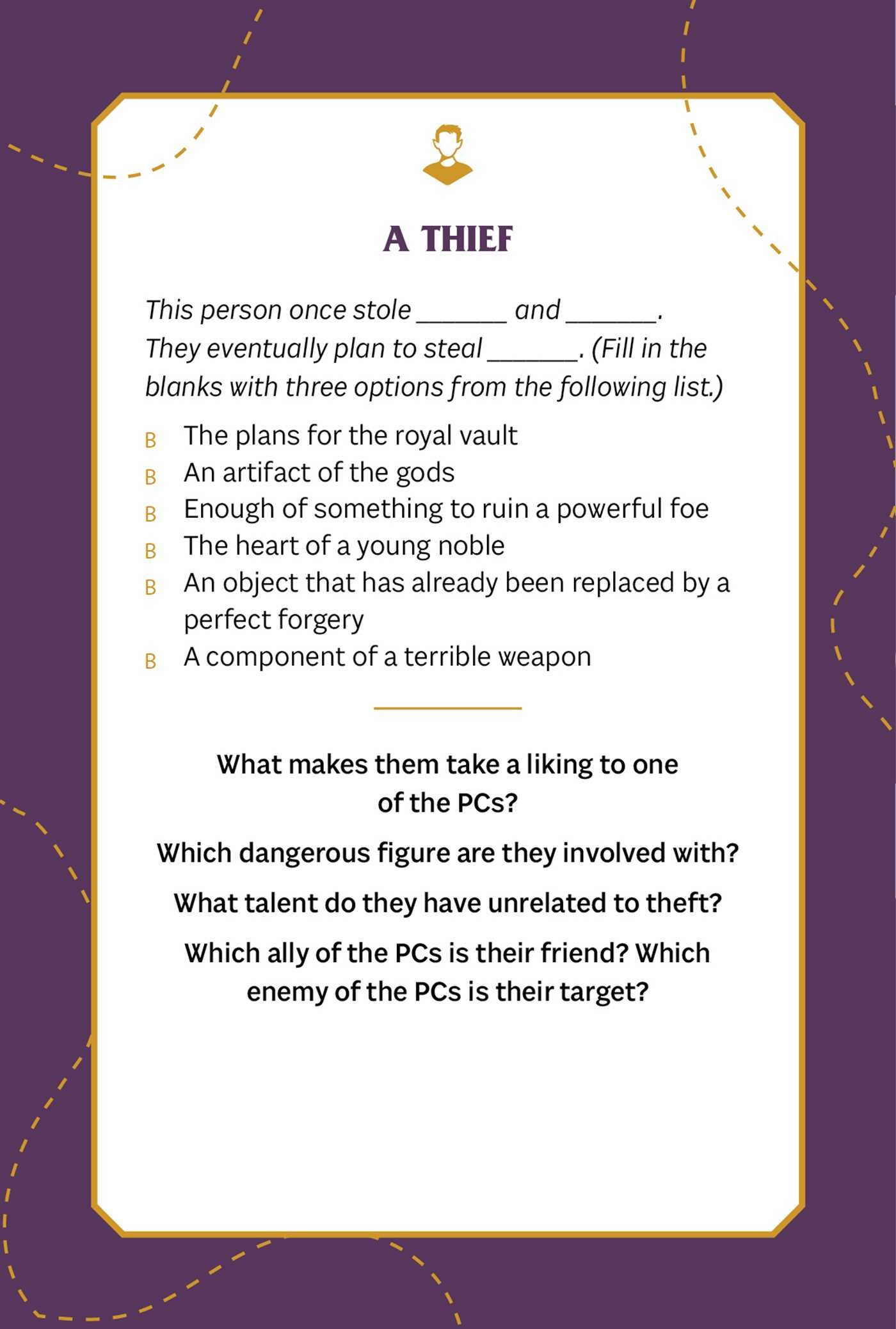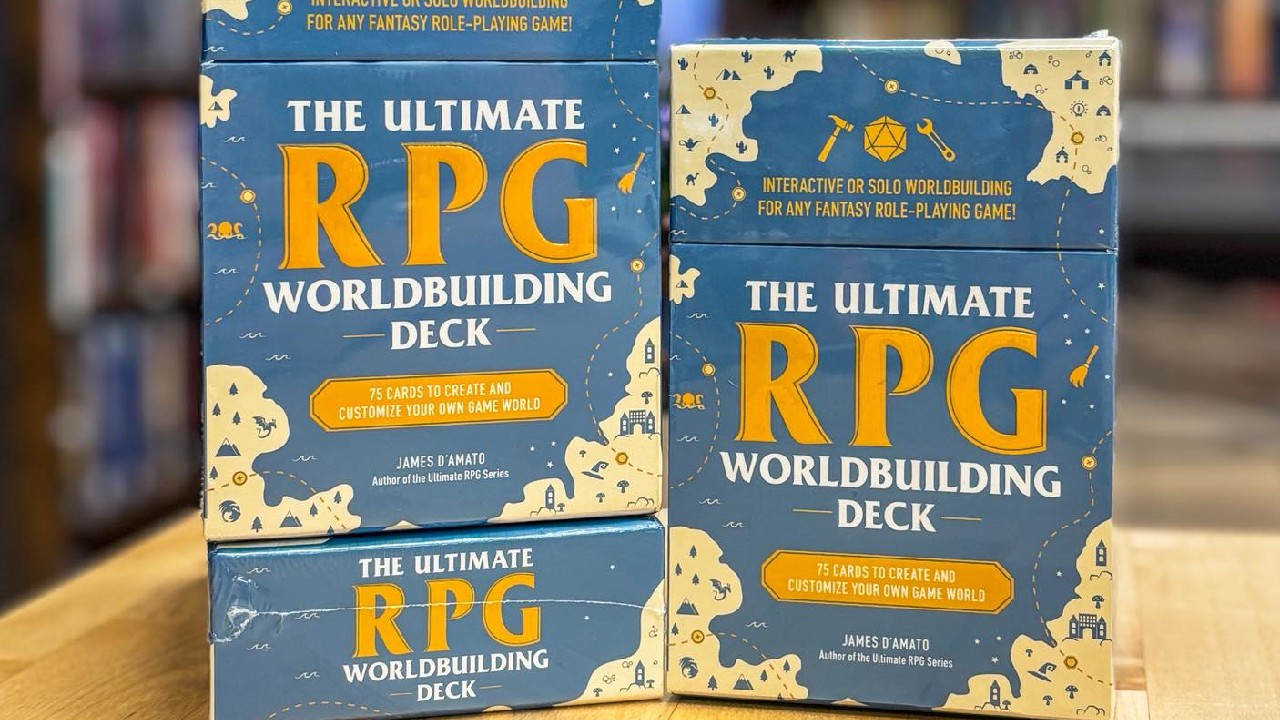Worldbuilding: some Game Masters think it’s the most fun thing to do, while others want a book to do it for them to cut down on prep time. Both ways are valid and both have produced memorable set pieces for adventure. And whether you want to do a little worldbuilding or a lot, there’s various products that offer to help. Oft-recommended tools include extensive guides on fantasy cartography to tomes of premade locales with rollable tables. The Ultimate RPG Worldbuilding Deck joins these as an easy-to-use solution that asks the right questions.
Priced at $18.99, the Ultimate RPG Worldbuilding Deck aims for a budget-friendly, no frills experience. The fold-up deck box comes with 75 cards split into five colors representing People, Places, History, Institutions, and Rumors. Compare it to the Story Engine series of products where the worldbuilding set is $41.99 for a box full of environment tiles. The Ultimate RPG Worldbuilding Deck isn’t here to help you build a whole map down to each river and foothill. It focuses instead on helping you create places you'll actually use in your sessions.
Drawing a Place card, for instance, might conjure a location where people go to rest on the road. There are then prompts that help you flesh out the physical details of this rest stop, but what I really want to highlight are the questions that sit on the bottom half of the card. These ask questions about what the Place means to your player characters. Will the quality of lodgings affect players of certain backgrounds? Is it a place that makes sense for a backstory NPC to show up? Will certain PCs find it easier to forge connections based on culture?
The cards’ questions remind you to include hooks for players in whatever they inspire you to build. Rumors are an obvious vehicle for introducing side quests. Yet even historical events should hold relevance to at least the campaign plot if not a PC’s ancestry. This sounds like GM 101 stuff, but we all know how easy it is to get lost in your own lore. I’m grateful, then, that the Ultimate RPG cards ask “but what gameplay event will happen here?”

Also, the parts about detailing the location/person/history are extremely useful. They often ask you to fill in a prompt with two positive things about it and two negative. The above example of a rest stop becomes more immersive as it might offer comfy beds but nowhere to bathe. A historical treaty could’ve brought peace to the realm, but the card asks you to consider what wasn’t included in its terms. Does it expire? Does it cost a lot of gold to upkeep? The natural question of “what if it fails?” comes up and sets the stage for a big campaign event.
For being sold as a quick-draw concept, I really like the depth provided by Ultimate RPG Worldbuilding Deck. Each card poses a few prompts but they all inspire you to add details that truly affect how your players interact with your world. This also holds up against another popular tool that uses prompts. You could ask ChatGPT to create a fantasy inn and it would give you a name, details, and probably even NPCS that frequent it. But it would lack personal touches such as rumors spoken in Thieves’ Cant for the rogue to investigate. With these cards, though? You’d have thought of that.
A copy of the Ultimate RPG Worldbuilding Deck was provided by the publisher for this review.
Sergio Solórzano is the best Dungeon Master in the USA (according to a Wizards of the Coast competition, anyway). He loves minis and terrain but also goes all-in on improv!











